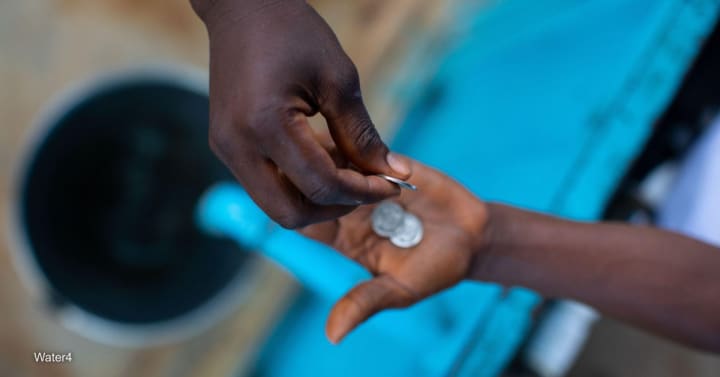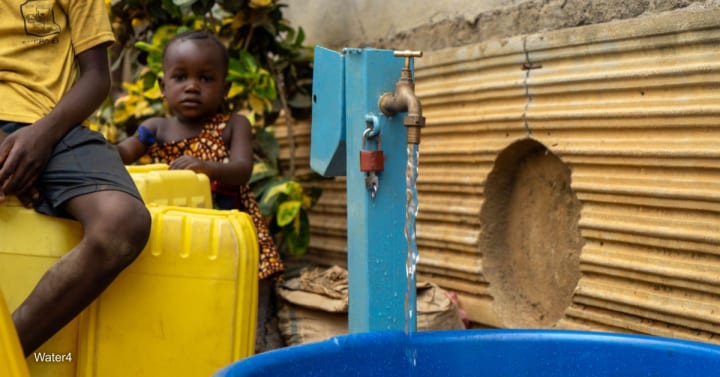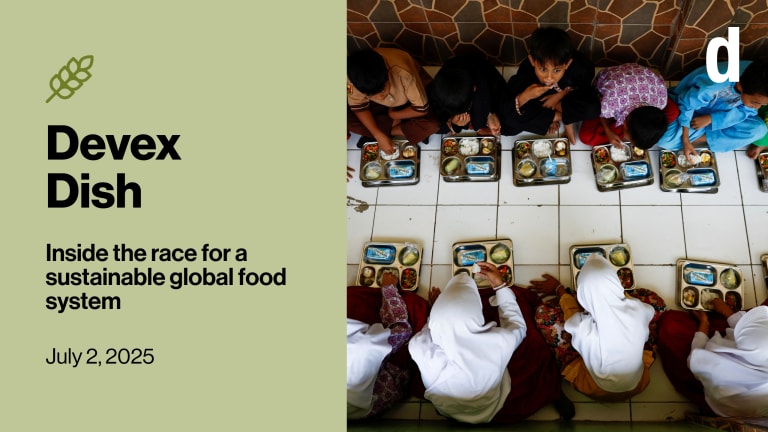
Willingness to pay, or WTP, refers to the maximum amount an individual is willing to spend to procure a good or service. In the context of water, it is influenced by several factors, including the perceived value of the service, income levels, and the availability of alternatives. Unlike affordability, which is often defined by a fixed percentage of household income, WTP is a dynamic measure that reflects consumers' valuation of water relative to other goods and services.
“The Prosperity Paradox: How Innovation Can Lift Nations Out of Poverty,” written by Clayton M. Christensen, Efosa Ojomo, and Karen Dillon, underscores the importance of creating new markets to drive economic development. It argues that focusing on nonconsumption — areas where people lack access to essential goods and services — can unlock significant opportunities for growth. Applying this principle to water, we see that by understanding and addressing WTP, we can create durable water markets that serve both economic and social goals.
Market-based approaches to water provision
Water4, an organization dedicated to creating water prosperity for people in Africa, exemplifies the potential of market-based solutions. Instead of relying solely on donations and free distribution, Water4 builds businesses that manage and scale local safe water utilities. This approach not only provides safe water but also creates jobs and stimulates local economies. By charging for piped water, these businesses ensure long-term durability, maintenance of the water infrastructure, and its expansion through reinvestment of revenues.
Charging for water might seem counterintuitive in regions where poverty is rampant. However, numerous studies have shown that even in low-income communities, people are willing to pay for reliable and convenient water services. For instance, in Ghana's Wassa East District, the introduction of NUMA-branded piped water led to significant improvements in health and economic productivity. The community's willingness to pay for this service reflects their recognition of its value beyond mere access to water.
Affordability vs. willingness to pay
Traditional views on affordability often advocate for providing water at minimal or no cost to ensure access for all. However, this approach can lead to underinvestment in infrastructure and poor service quality. When water is provided for free, there is little incentive for providers to maintain and improve the system. Moreover, free services create a dependency that undermines the local initiative and entrepreneurship generated by the freedom of choice that comes with the option to pay for or refuse a service.
In contrast, a focus on WTP encourages the development of efficient and responsive water services. By charging for water, providers can generate the revenue needed to invest in infrastructure, ensure consistent quality, and expand services. This approach aligns with the principles of Austrian economics, which emphasize the importance of market signals and entrepreneurship in resource allocation.
Many leaders, such as Magatte Wade, a Senegalese entrepreneur and advocate for free-market solutions in Africa, argue that empowering local businesses is key to solving the continent's challenges. Magatte highlights the need for a paradigm shift from aid dependency to market-driven development based on the work of her mentor George Ayittey, the Ghanaian author of the pioneering book “Africa Unchained: The Blueprint for Africa's Future.” In the context of water, this means recognizing that consumers are willing to pay for reliable services and that local entrepreneurs are best positioned to meet this demand. Research by Efosa Ojomo of the Clayton Christensen Institute also makes a historic case against the harmful effects of aid-based economic growth, of which water is a crucial part, in his co-authored book “The Prosperity Paradox.”

NUMA Water: A case study
The transformation of Water4’s venture, Access Development Limited, into NUMA Water illustrates the power of market-based water provision. Originally focused on providing water access through drilling wells, the organization evolved into a micro-utility provider offering piped water services. This shift allowed them to scale their operations and expand high-quality water access to more communities. By adopting a business model that charges for water, NUMA Water ensures the long-term viability of its services and fosters local economic growth.
The change from handpumps to piped water resulted from one provocative question to rural African communities: What would you pay for? Their answer: piped water. So Water4 dropped its proprietary method and designed a solution that delivered what communities wanted to buy for a price they were willing to pay for. As a result, more than 686,000 people have gained access to safe, reliable water, and the organization aims to reach over 6 million people by 2030. This success demonstrates that when people are given the opportunity to pay for services that improve their lives, they are willing to do so. It also illustrates the importance of viewing water provision through the lens of market creation rather than merely addressing affordability as static rather than dynamic via value provision.
Conclusion
The lack of safe water in Africa is a complex challenge that requires innovative solutions. While traditional charitable approaches have made some progress, they often fall short of creating sustainable and scalable outcomes. By focusing on willingness to pay and adopting market-based approaches, we can create new water markets that not only provide essential services but also drive economic development.
Water4 and its venture startup, NUMA Water, show that as local people are empowered to build and manage water businesses, communities benefit from reliable and high-quality water services. By ensuring 24/7 uptime of water systems and ease of payment, other local businesses are also flourishing. The stable price and convenient access have allowed businesses from hair salons, roadside cafes, agro-processing centers, and cinder block manufacturers to spring up, bringing new products into markets, and creating employment for hundreds more.
In conclusion, addressing Africa's water crisis through market creation determined what we could charge for piped water based on the value it would provide, not the value placed on prior failed solutions. Water4’s model harnesses the willingness to pay to ensure that the level of solutions provided are the ones valued. This pricing allows them to be maintained and expanded without the need for perpetual subsidies, contributing to the prosperity and well-being of communities across the continent.
$50 is the upfront capital needed to bring piped water to an individual who then purchases it by volume — our business model ensures it flows forever. For more information about Water4, please visit water4.org.




